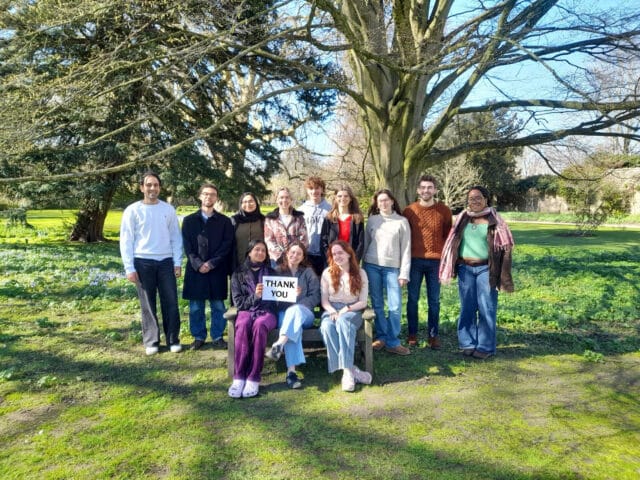Worcester historian awarded Procter Visiting Fellowship at Princeton

17th September 2024
Worcester historian awarded Procter Visiting Fellowship at Princeton
James Cogbill, doctoral candidate in History at Worcester, is the recipient of one of this year’s prestigious Procter Visiting Fellowships at Princeton University.
Endowed in 1921, the Jane Eliza Procter Visiting Fellowships are designed to enable young British and French scholars to pursue advanced study in the Princeton Graduate School. Only four fellowships are awarded each year: one to a student from the University of Oxford, one from the University of Cambridge and two from the École Normale Supérieure in Paris.
Currently pursuing his DPhil at Worcester, James Cogbill works on the political culture of the late medieval Byzantine Empire. His research is funded by the Arts and Humanities Research Council, the Clarendon Fund and All Souls College, Oxford. He previously received a BA in Ancient & Medieval History from the University of Birmingham and an MPhil in Late Antique & Byzantine Studies from the University of Oxford. He is a member of the executive and publications committees of the UK’s Society for the Promotion of Byzantine Studies, and also created and ran the online Oxford Byzantine Graduate Seminar for three years, hosting sixty-four early career speakers across eleven countries and twenty-seven institutions.
James’ doctoral project advances the ongoing reassessment of the Late Byzantine period through an interdisciplinary examination of the extended imperial family between 1258 and 1341. His thesis will demonstrate that Late Byzantine imperial relatives were a politically, socially and culturally significant group with often decisive influence over imperial decision-making. Rather than operating as autocrats as is commonly understood, he argues that the freedom of action of emperors was frequently constrained and subject to negotiation in a fluid, messy and multipolar political landscape.
As a Procter Fellow, James will be based in Princeton’s Department of History. Alongside completing his thesis, he intends to use his time in the US to develop his interests in transregional and comparative history by planning a long-term postdoctoral project exploring the frequent movement of politically active individuals between Byzantium and western Europe during the Middle Ages. In doing so, he hopes to demonstrate that Byzantium should be considered far more integral to the study and, even more importantly, the teaching of medieval Europe than has hitherto been the case.












